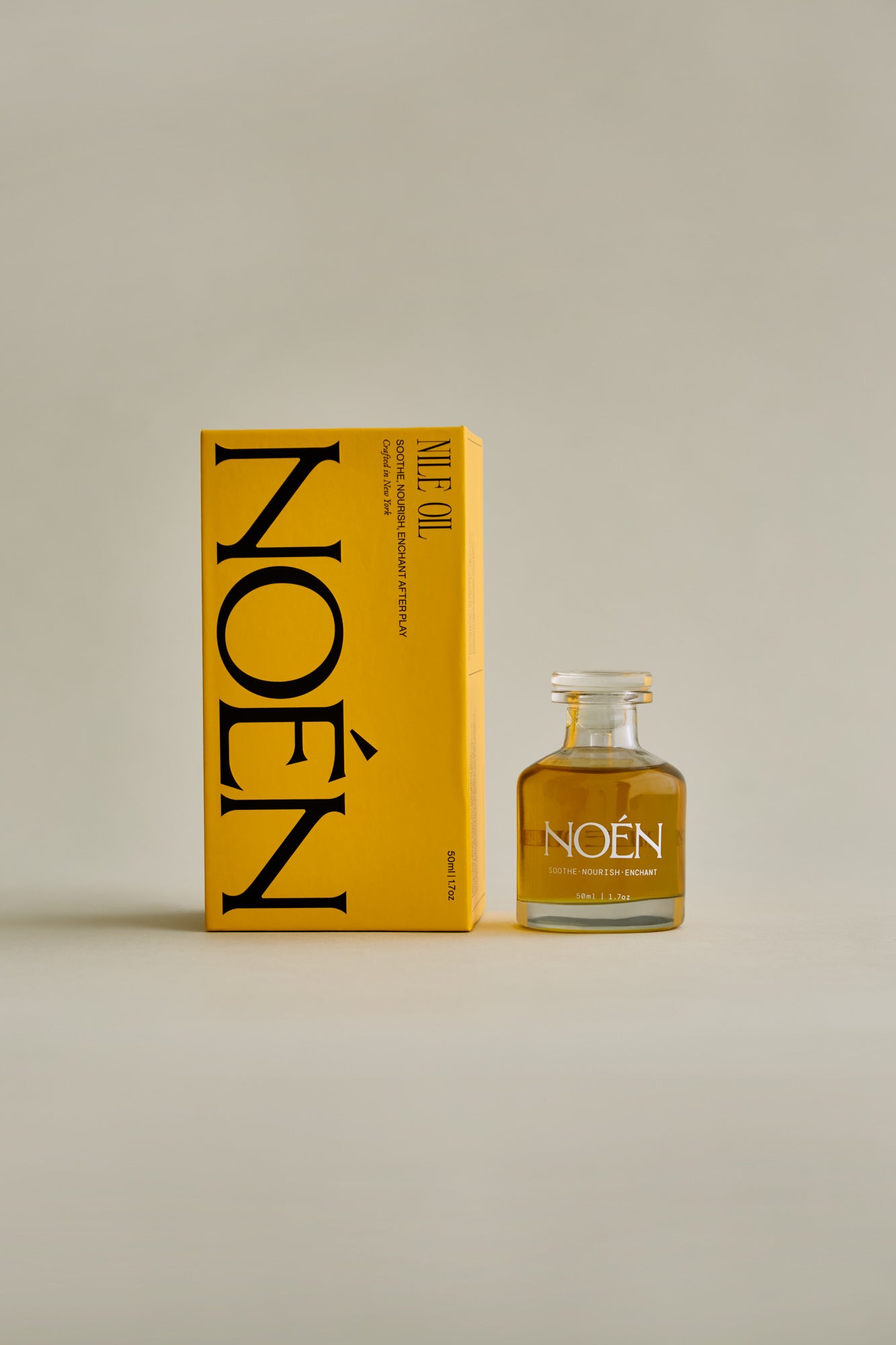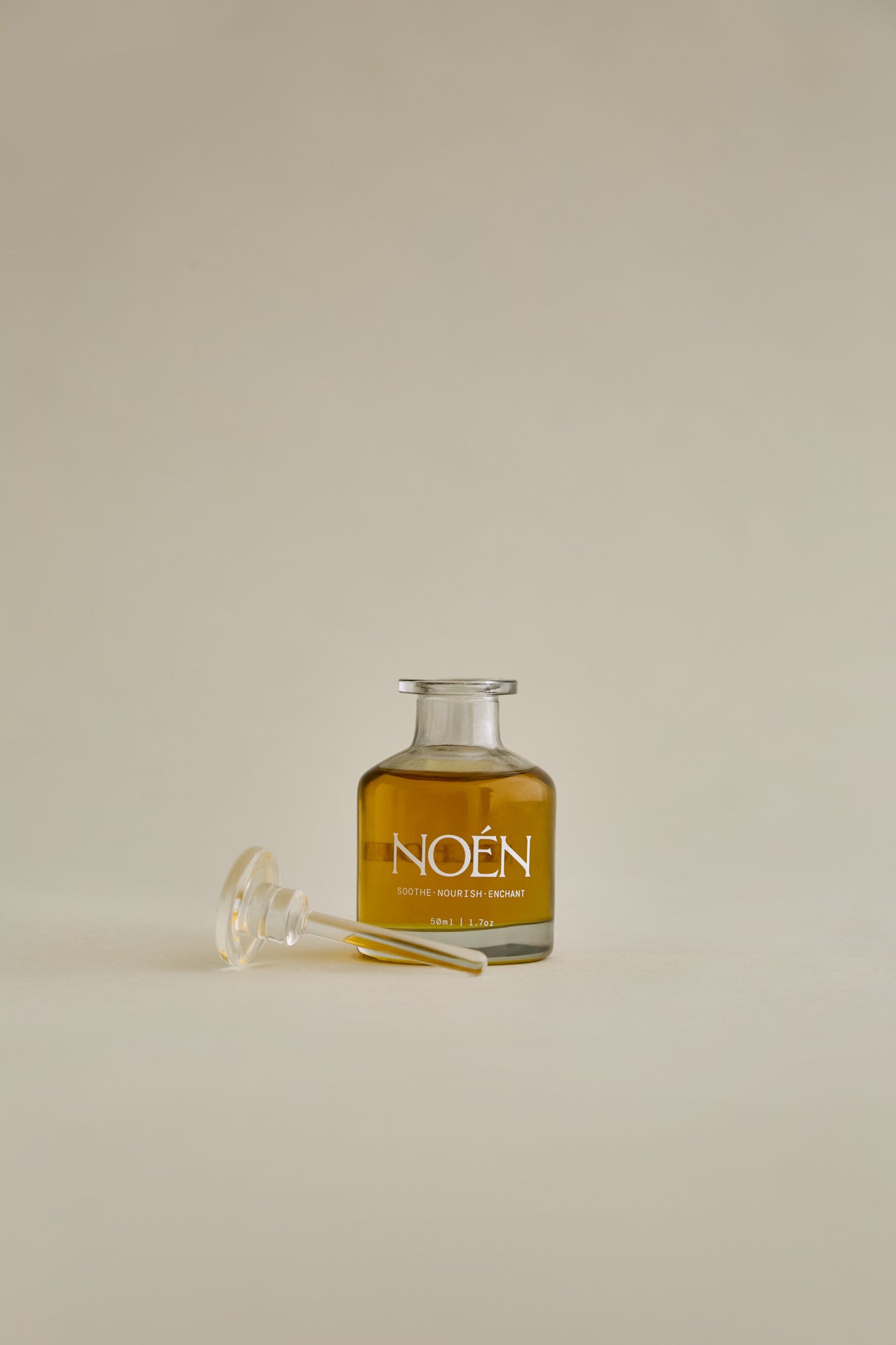DECEMBER 1, 2024 | EMMA COLANGELO
“I want you to teach me what you want.”
I smiled and climbed onto his lap, pressing my heart to his. Snow fell softly outside the window, blurring the world into a quiet, gentle haze. Sometimes, the energy between two people is so intense it feels ready to burst open—like a buzz through your body that makes every cell vibrate until the moment itself dissolves, just like the snowy world beyond the window. But I knew I didn’t want this moment to blur. I wanted to stay, to savor.
I thought of the raisin exercise from Better Sex Through Mindfulness by Lori Brotto, a book that forever changed how I think about intimacy. In the exercise, participants hold a raisin, observing its texture, color, and ridges before slowly tasting it, savoring each moment. The raisin becomes a metaphor for connection, showing us what’s possible when we slow down, paying attention to every detail with care. Intimacy, like a raisin, can only be appreciated fully when we’re present enough to notice its delicate layers.

Photo courtesy of Chantal Convertini
"I want to savor you," I said, slowing my breath and the moment. "I want to look at you. Really look at you. And I want us to breathe together."
As we synced our breaths, my eyes explored his: deep brown, gentle, with tear ducts that curled upward like they were drawn in cursive. If I hadn’t taken the time to truly see him, I might have written his eyes off as simply pretty and missed the way they illuminated something deeper. Focusing on our breath activated a kind of alchemy—the energy between us didn’t just persist; it evolved, growing richer and more deliberate. It wasn’t about losing ourselves in the moment but finding ourselves within it.
Each touch became vivid, each sensation magnified. I felt every tiny hair on my neck rise with the warmth of his breath, the swirl of his fingerprint against my skin. Thinking about my body has often pulled me into spirals of insecurity, but feeling my body was different. Each sensation drew me into the present, out of my head and into my body. In that space, pleasure wasn’t just something to chase; it was something to experience.
Then, suddenly, the moment slipped. I found myself staring at the ceiling, the sensations dulling into the textured bumps above me. It was a disorienting shift—from hyper-present to disconnected. The ceiling transported me back to another place and time, one where intimacy felt like danger, and dissociation had been my shield.
For those of us with sexual trauma, arousal can sometimes feel like an alarm—a signal to retreat. In that moment, my body chose to protect me by shutting down. But then his hand found my cheek, grounding me. "Breathe with me," he said softly, inviting me back—not just to him but to myself.
This is the power of mindfulness: it doesn’t just anchor us to the present; it creates a bridge between ourselves and another. Intimacy, at its core, is about safety—the safety to feel, to be vulnerable, to stay. And even when trauma whispers otherwise, these shared moments teach our bodies a new story: that it’s safe to be here, to breathe, to connect.
That night, I stayed in the moment as much as I could. And the next night, and the one after that. Jim Croce’s "Time In A Bottle" played on repeat in my mind as I held him, aware that he’d be like the snow outside: breathtakingly beautiful, but fleeting.
Moments, by their nature, don’t last. But mindfulness taught me that by fully inhabiting them, we gain something even deeper: a connection to ourselves, to others, and to the beauty that makes even the briefest second worth savoring.
He had asked me to teach him what I wanted, but what I learned was far more profound. In the safety of those moments, I rediscovered what it means to be present—to savor, to feel, to connect. Mindfulness reminded me that even as moments fade, their fullness stays with us. And that’s enough. Because life, in all its richness, is simply a series of moments—some fleeting, but all worth living.







